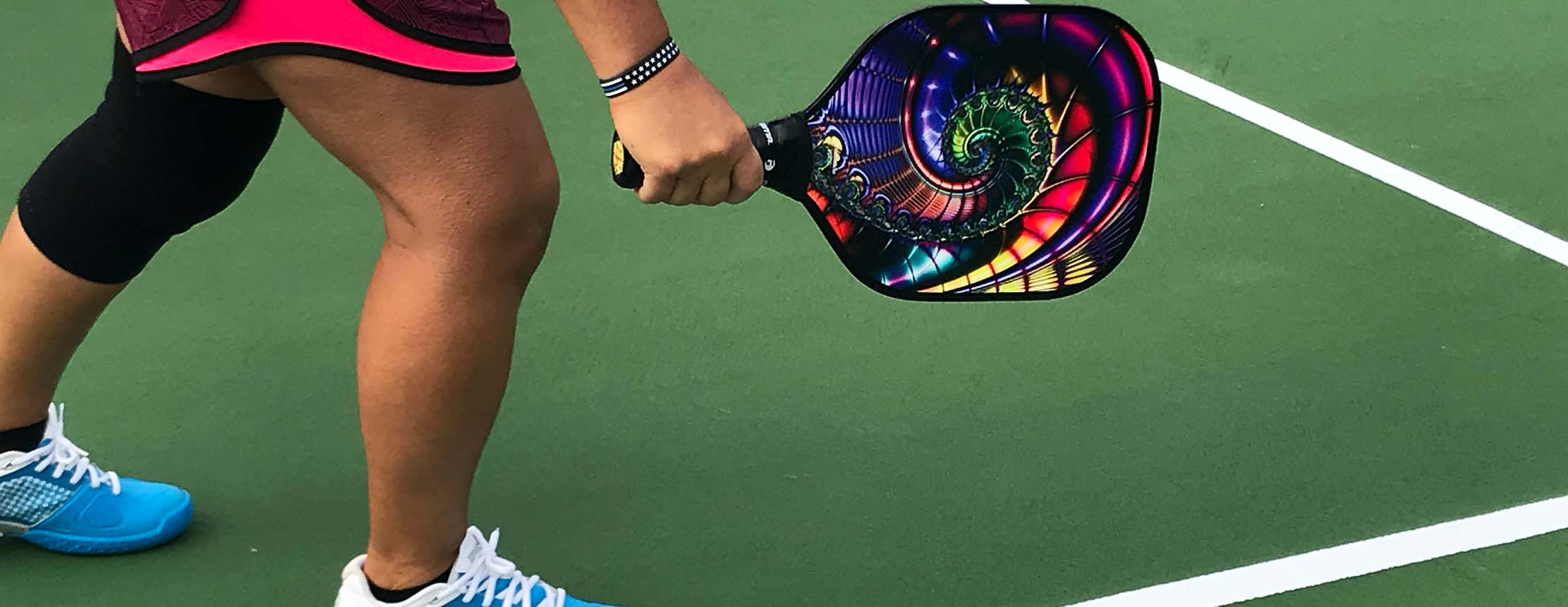In recent years, there has been a surge in the popularity of pickleball, a fast-paced paddle sport that combines elements of tennis, badminton, and table tennis.
While pickleball offers numerous physical benefits, such as improved cardiovascular fitness and enhanced coordination, its impact on mental health is often overlooked.
Here I explore the mind-body connection inherent in pickleball and how this sport can significantly benefit your mental well-being.
- The Mind-Body Connection
The mind-body connection refers to the profound interrelationship between our mental and physical well-being. Engaging in physical activities can have a positive impact on our mental health by reducing stress, enhancing mood, and improving cognitive function.
Pickleball, with its unique blend of physical exertion, strategic thinking, and social interaction, offers an ideal platform to explore this connection. You can also find your pickleball rating to know your skill level on different websites.
- Stress Reduction
One of the most significant benefits of pickleball for mental health is stress reduction. Engaging in regular physical exercise, such as playing pickleball, triggers the release of endorphins—neurotransmitters that act as natural mood elevators.
These endorphins help combat stress, reduce anxiety, and alleviate symptoms of depression.
Pickleball’s fast-paced nature and focus on quick reflexes demand full attention and concentration. It creates a sense of mindfulness that can redirect attention away from stressors and promote a calmer state of mind.
- Enhanced Mood and Well-being
Physical activity has been shown to increase the production of serotonin and dopamine—neurotransmitters associated with feelings of happiness and well-being.
And the fast-growing sport of Pickleball has vastly contributed to the above health benefits. Regular participation in pickleball can result in elevated mood levels, improved self-esteem, and a greater sense of accomplishment.
Additionally, the social aspect of the game, as players often engage in friendly banter and forge new connections, can foster a sense of belonging and community. It may further contribute to enhanced mental well-being.
- Improved Cognitive Function
Pickleball is not just about physical exertion; it also requires strategic thinking, quick decision-making, and hand-eye coordination. Engaging in these mental processes during gameplay can stimulate the brain and enhance cognitive function.
Studies have shown that regular physical exercise, combined with cognitive engagement, can lead to improved memory, increased focus, and enhanced problem-solving skills.
The mental agility developed through pickleball can have positive ripple effects on other aspects of life, both inside and outside the court.
- Stimulation of Neuroplasticity
Neuroplasticity refers to the brain’s ability to reorganize itself and form new neural connections throughout life. Engaging in complex physical activities, such as pickleball, stimulates neuroplasticity and encourages the growth of new brain cells.
This process can contribute to improved learning abilities, increased adaptability, and a higher resilience to age-related cognitive decline. By challenging the brain through the dynamic nature of pickleball, players can potentially sharpen their mental acuity and promote long-term brain health.
- Stress Relief and Work-Life Balance
In today’s fast-paced world, striking a balance between work and personal life is crucial for maintaining mental well-being. Pickleball can serve as excellent stress relief and an avenue for escaping daily pressures.
Engaging in regular play sessions can provide a much-needed break from the routine, allowing players to recharge mentally and emotionally.
The social aspect of pickleball also offers an opportunity to connect with like-minded individuals, creating a supportive network and fostering a healthier work-life balance.
Why Do People Love Pickleball So Much?
Pickleball has experienced a significant surge in popularity in recent years, and there are several reasons why people are drawn to and enjoy playing the sport:
- Accessibility: One of the primary reasons for pickleball’s popularity is its accessibility. The rules and techniques of the game are relatively simple to learn, making it easy for beginners to pick up and enjoy.
The smaller court size and slower pace compared to other racket sports, such as tennis, make it more approachable for individuals of all ages and fitness levels.
- Social Interaction: Social interaction is vital for the nation’s health and wellness; and Pickleball is a highly social sport, fostering connections and camaraderie among players. It is often played in doubles, which encourages teamwork and collaboration.
The social aspect of pickleball provides opportunities for individuals to engage with others, build friendships, and create a sense of community. Many players enjoy the social aspect as much as the physical activity itself.
- Fun and Engaging: Pickleball is known for its fun and engaging nature. The game combines elements of different sports, such as tennis, badminton, and table tennis, creating a unique and dynamic experience.
The fast-paced rallies, strategic shot placement, and quick reflexes are required to make every point exciting. The blend of physical activity and mental stimulation adds to the enjoyment and keeps players engaged and motivated.
- Versatility and Adaptability: Pickleball is a versatile sport that can be played in various settings. It can be enjoyed indoors or outdoors on different surfaces, such as gymnasiums, tennis courts, or dedicated pickleball courts.
The game can also be adapted to different skill levels, allowing players to continuously challenge themselves and progress over time. This versatility makes pickleball accessible to a wide range of individuals and provides opportunities for growth and development.
- Health and Fitness Benefits: Pickleball offers numerous health and fitness benefits. The sport provides a good cardiovascular workout, improves agility, coordination, and balance, and helps build strength and endurance.
Regular participation in pickleball can contribute to overall physical fitness, weight management, and general well-being. The combination of physical exercise and mental engagement also promotes brain health and cognitive function.
- Competitive and Recreational Opportunities: Whether individuals enjoy friendly competition or simply want to engage in recreational play, pickleball caters to both preferences.
There are organized leagues, tournaments, and social clubs that provide opportunities for competitive play for those who want to test their skills.
Additionally, many players enjoy the recreational aspect of pickleball, playing casually with friends and family for leisure and enjoyment.
Pickleball is more than just a game; it is a holistic experience that combines physical activity, strategic thinking, and social interaction.
By engaging in this enjoyable sport, individuals can reap the benefits of the mind-body connection and significantly improve their mental well-being.
From stress reduction and mood enhancement to improved cognitive function and neuroplasticity, pickleball offers a comprehensive approach to mental health.





